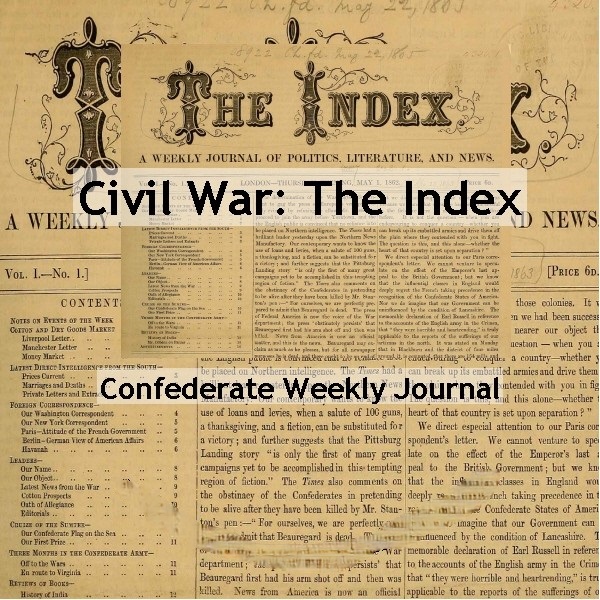
Civil War – The Index Weekly Journal – Confederate Weekly Journal 1862-1864
$19.50
Description
Henry Hotze and the Confederate *Index* in London
Timeline of Main Events Covered in the Source:
- Pre-Civil War:
- 1833: Henry Hotze is born in Switzerland.
- Mid-1850s: Hotze immigrates to the United States and settles in Mobile, Alabama.
- Before 1858: Hotze holds strong white supremacist beliefs.
- Before 1858: Hotze is hired by Josiah Nott to translate Joseph Arthur Comte de Gobineau’s “An Essay on the Inequality of the Human Races” into English, adding his own lengthy introduction emphasizing racial inequality.
- 1858: Hotze goes to Brussels as a secretary for the U.S. legation.
- 1860: Hotze returns to Mobile and becomes an associate editor of the Mobile Register.
- Outbreak of the Civil War: Hotze joins the Mobile Cadets.
- Early Civil War: Hotze becomes a clerk to the adjutant general of the Confederate War Department.
- Early Civil War: Confederate Secretary of War Leroy Pope Walker sends Hotze to England to arrange funding for Confederate agents in Europe.
- Early Civil War: Hotze convinces Confederate leadership in Richmond of the need to influence British public opinion in favor of the Confederacy. He begins writing pro-Confederate articles for British newspapers (Herald, London Standard, Morning Post, Money and Market Review).
- May 1862:
- The first issue of The Index, A Weekly Journal of Politics, Literature, and News is published in London. It is founded, published, and edited by Henry Hotze with Confederate funding. The journal aims to promote the mutual interests of Great Britain and the Confederate States of America.
- The Index begins publishing with a focus on politics, literature, and news, often featuring the cotton market on its front page to highlight economic ties between England and the South.
- Confederate diplomats and agents in England actively seek British recognition of the Confederacy, secure arms and ships, and disseminate pro-Confederate propaganda, with The Index serving as a key tool for this.
- May 15, 1862: The Index publishes an article on the Union capture of New Orleans.
- August 7, 1862: The Index publishes an article comparing Union General George McClellan and Confederate General Stonewall Jackson.
- September 11, 1862: The Index publishes a report on Union General John Pope’s campaign and an opinion piece discussing the Confederate reaction to the Union’s potential use of African-American troops.
- October 16, 1862: The Index reports on and comments on President Lincoln’s preliminary Emancipation Proclamation, issued after the Battle of Antietam.
- July 16, 1863: The Index publishes its report on the Battle of Gettysburg.
- July 23, 1863: The Index publishes an article titled “The Natural History of Man,” reflecting the paper’s defense of slavery and appeal to white supremacy.
- 1862-1864 (Ongoing):
- The Index continues publication in London, funded by the Confederacy.
- Henry Hotze hires British journalists and syndicates their pro-Confederate articles to various British and European publications, as well as some Northern newspapers.
- The Index consistently presents pro-Confederate and anti-Union perspectives, defending slavery as a means of Confederate unity and economic strength, often appealing to racial inequality.
- The Index provides “Last Direct Intelligence from the South, Private Letters from the Southern and Northern States, Foreign Correspondence, information on the Cotton and Dry Goods Market and other commercial reports.”
- The Index achieves a circulation of around 2,000, primarily in Britain, with distribution to France, Ireland, and the Northern United States.
- Pro-Confederate newspapers in the Northern United States face closure and the arrest of their editors, while Southern newspapers struggle with the effects of the war. Hotze in England operates freely.
- Five Months After the End of the Civil War (April 1865): The Index ceases publication.
- Post-Civil War: Henry Hotze remains in Europe to promote the racial theories of Joseph Arthur Comte de Gobineau. Gobineau’s theories later gain a strong following in Germany and are partially adopted by the Nazi regime.
Cast of Characters:
- Henry Hotze: Born in Switzerland in 1833, he immigrated to Mobile, Alabama. A staunch white supremacist, he translated Gobineau’s work on racial inequality, adding his own introduction. He served as associate editor of the Mobile Register before the Civil War. During the war, he became a clerk in the Confederate War Department and was sent to England to secure funding for Confederate agents. He later convinced Confederate leadership to allow him to focus on influencing British public opinion. He founded, published, and edited the pro-Confederate weekly journal The Index in London from May 1862 until after the war. After the war, he remained in Europe to promote Gobineau’s racial theories.
- Leroy Pope Walker: Served as the Confederate Secretary of War early in the Civil War. He was responsible for sending Henry Hotze to England initially to arrange funding for Confederate agents in Europe.
- Josiah Nott: An American physician and anthropologist known for his polygenist views on race. He hired Henry Hotze to translate Gobineau’s “An Essay on the Inequality of the Human Races” into English.
- Joseph Arthur Comte de Gobineau: A French diplomat, writer, and philosopher best known for his theories on racial inequality, particularly as expressed in his book “An Essay on the Inequality of the Human Races.” His ideas later influenced white supremacist movements.
- George McClellan: A Union General during the Civil War. The Index published a comparison of him with Confederate General Stonewall Jackson.
- Stonewall Jackson: A prominent and highly successful Confederate General during the Civil War. The Index published a comparison of him with Union General George McClellan.
- John Pope: A Union General who led a campaign that was reported on in the September 11, 1862 issue of The Index.
- Abraham Lincoln: The President of the United States during the Civil War. The Index reported on and commented on his preliminary Emancipation Proclamation.
Civil War: “The Index” Weekly Journal Confederate Weekly Journal 1862-1864
2,180 pages in four volumes of the Confederate financed, “The Index. A weekly journal of politics, literature, and news; devoted to the exposition of the mutual interests, political and commercial, of Great Britain and the Confederate States of America.”
The collection includes Volume 1 May 1, 1862 to October 23rd, 1862, Volume 2 October 30th, 1862 to April 23rd, 1863, Volume 3 April 30th, 1863 to December 31, 1863, and Volume 4 January 7, 1864 to December 31, 1864.
A subject index is included for volumes 1 and 3.
The London based and Confederate funded weekly journal billed itself as, “Last Direct Intelligence from the South, Private Letters from the Southern and Northern States, Foreign Correspondence, information on the Cotton and Dry Goods Market and other commercial reports”.
Confederate diplomats in England sought recognition of the sovereignty of the Confederate States of America by Britain. Confederate agents were also involved in clandestine operations to secure arms, ships, and to disseminate pro-Confederacy propaganda. Confederate agents found English reporters who were willing to accept payment in exchange for writing pro-Confederate articles. Eventually funds were provided to publish “The Index.”
Founded, published and edited in England by Henry Hotze, a former U.S. Foreign Service officer, who was an undercover Confederate operative who wrote pro-South articles for British newspapers, “The Index, A Weekly Journal of Politics, Literature, and News” first issue was published in May 1862. Hotze hired British journalists and syndicated their pro-Confederate articles to dozens of British and European publications and to Northern newspapers. Hotze’s journal kept publishing until five months after the war ended.
The Index had a circulation of around 2,000 mostly in Britain with copies distributed to France, Ireland, and the America North. The front page usually dealt with the cotton market as a way to stress the economic ties between England and the American South.
Pro-Confederate newspapers in the Northern United States were subject to closure and their editors to arrest. Southern newspapers had to deal with the inflictions of war on publishing a newspaper in the South and eventual control by Union forces. Some southern editors were afraid that Union victory could result in their imprisonment for treason. In England, Holtze was free to be as pro-Confederate and as anti-Union as he pleased.
The paper did not shy away from defending slavery, a practice which England had outlawed years earlier. The Index proclaimed slavery as a means of Confederate unity and strength. Slavery, The Index and Hotze argued would endow the South with the “intrinsic power to create wealth,” while at the same time manage the inequality between whites and blacks, and the economic inequity between groups of whites. Often the paper would appeal to white supremacy sentiment in England with articles like “The Natural History of Man,” published in the July 23, 1863 issue of The Index.
About Henry Hotze
Commonly referred to by historians as a “Confederate Propagandist,” Hotze was born in Switzerland in 1833. Hotze immigrated to the United States and settled in Mobile, Alabama. He held strong white supremacist beliefs. He was hired by race theorist Josiah Nott to translate into English, Joseph Arthur Comte de Gatineau’s “An Essay on the Inequality of the Human Races.” Hotze added his own introduction which was 100 pages long. His version of Gobineau’s work stressed the notion that it was justified to treat unequally what he believed to be unequal races.
In 1858 he went to Brussels as a secretary for the U.S. legation. Two years later he returned to Mobile to become an associate editor of the Mobile Register. After the outbreak of the Civil War Hotze joined the Mobile Cadets and later became a clerk to the adjutant general of the Confederate War Department.
Confederate Secretary of War Leroy Pope Walker sent him to England to arrange the funding of Confederate agents in Europe. He convinced the Confederate leadership in Richmond that he should take on the role of influencing British public opinion toward supporting the Confederacy. In addition to paying off journalists, he penned articles that appeared in the Herald, London Standard, Morning Post, and the Money and Market Review.
In May 1862, he created the weekly journal, The Index. After the war ended Hotze remained in Europe to promote the racial theories of Gobineau. Gobineau’s theories attracted a strong following in Germany and latter were partially adopted by the Nazis.
Collection Note: Volume 1 is missing issue number 2. Volume 2 is missing issues numbers 30 and 37. Volume 3 is missing numbers 70 and 77. The first 70 pages of volume 4 contain some torn pages and blurred images. A single leaf is missing from issues number 115, 117, 132 and 138.
The nameplate of the first issue of The Index May 1, 1862
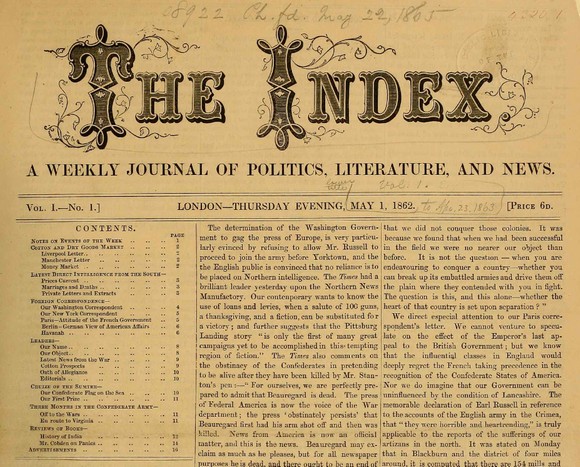
Article on the Union capture of New Orleans from the May 15, 1862 issue of The Index
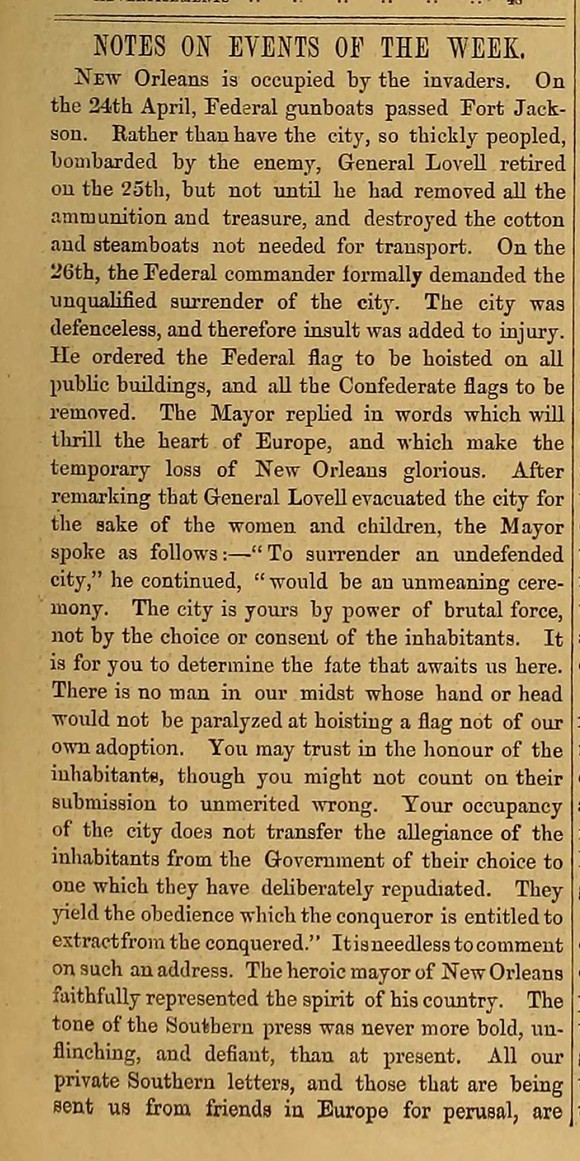
An article from the August 7, 1862 issue of The Index comparing General George McClellan and General Stonewall Jackson
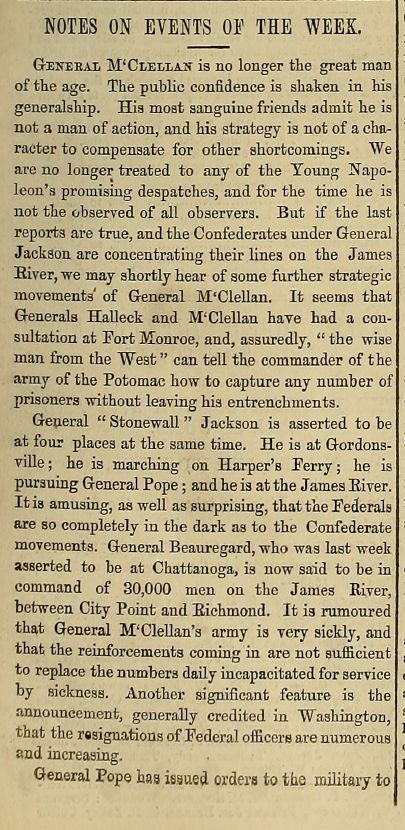
Report on Union General John Pope’s campaign from the September 11, 1862 issue of The Index
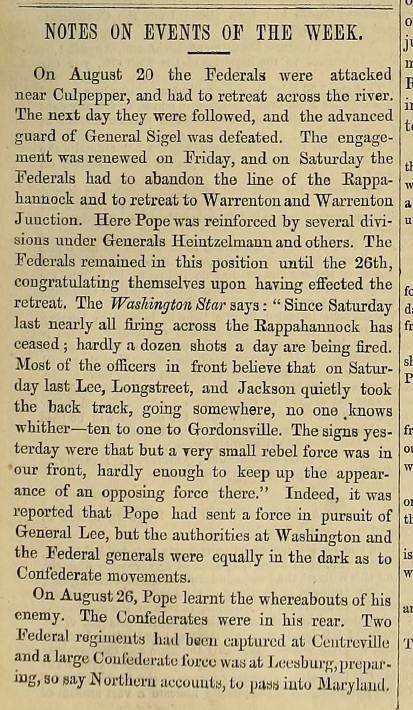
Opinion piece on what the Confederate reaction should be to the Union using African-American troops printed in the September 11, 1862 issue of The Index Column 1

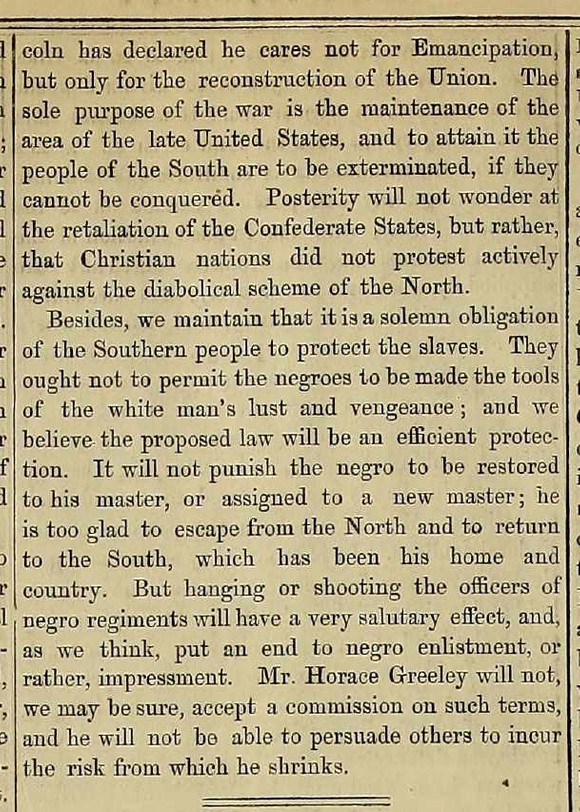
Article reporting and commenting on President Lincoln’s preliminary Emancipation Proclamation issued after the battle of Antietam from the October 16, 1862 issue of The Index Column 
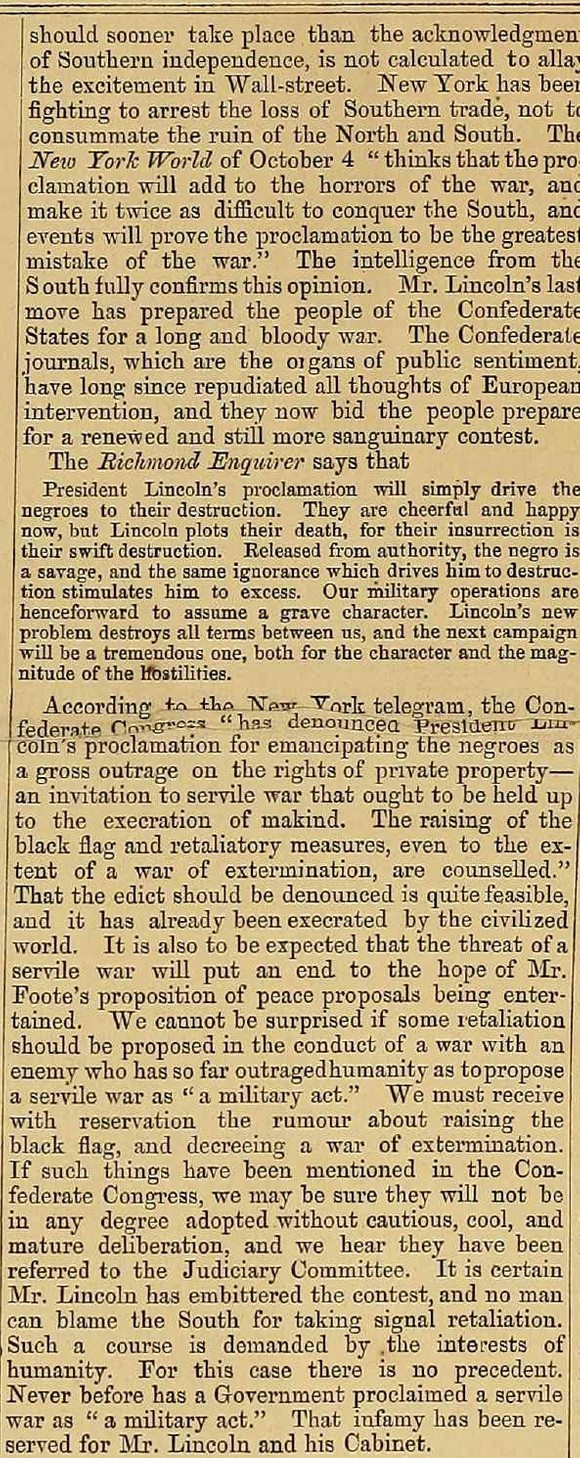
The Index’s report on the Battle of Gettysburg published in the July 16, 1863 issue.

Related products
-

Holocaust Document Archive PDF file – Inventory Catalog of Document Collection
$3.94 Add to Cart -
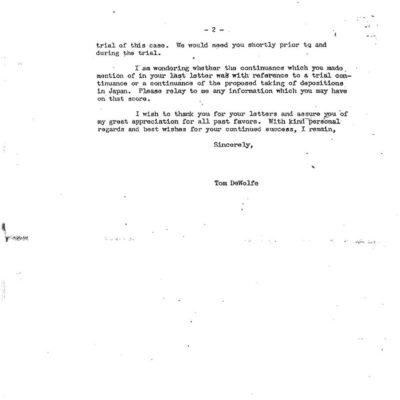
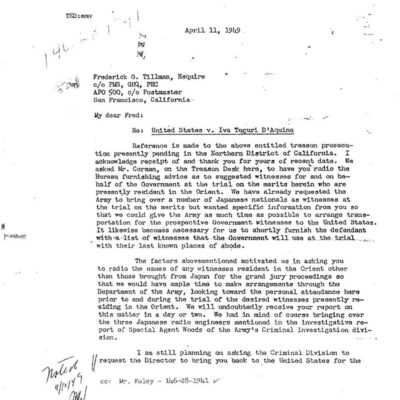
Tokyo Rose: Department of Justice Prosecution Files
$19.50 Add to Cart -
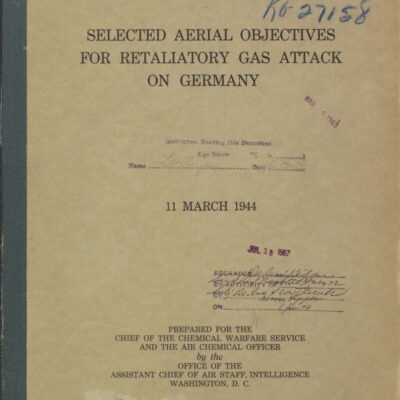

World War II: Targeted Aerial Objectives for Retaliatory Gas Attacks on Germany and Japan
$3.94 Add to Cart -
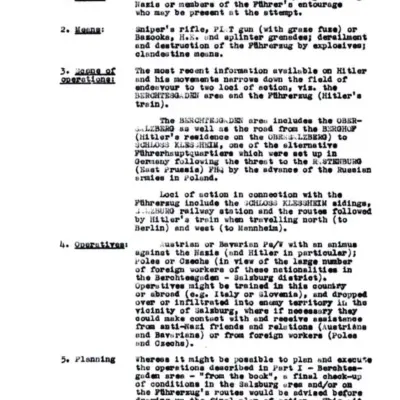
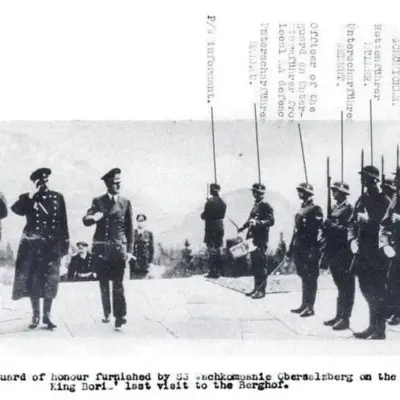
World War II: Adolf Hitler and Operation Foxley – British Assassination Plot
$19.50 Add to Cart